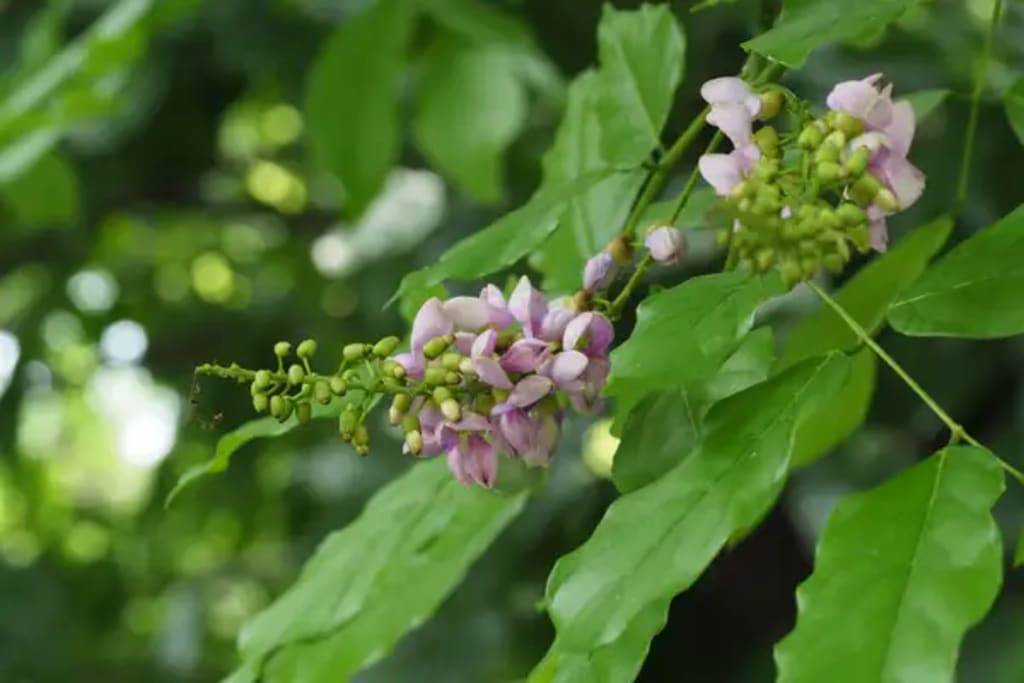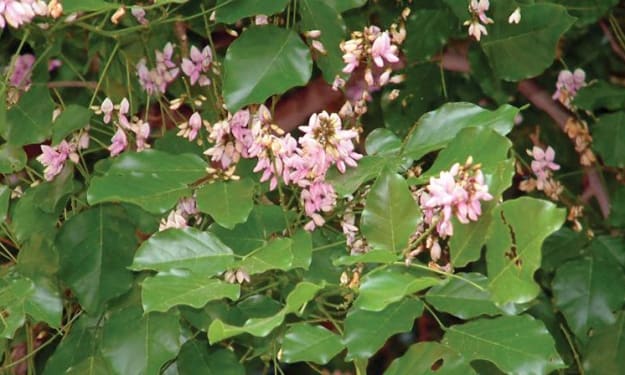Unlocking the Healing Potential of Pongamia Pinnata (Millettia pinnata)
Solution for a Variety of Ailments

Welcome, friends! Today, we're going to take a closer look at Pongamia Pinnata, a plant that has been used for centuries in Ayurvedic medicine. Pongamia Pinnata, also known as Indian Beech, is a tree that is native to India and Southeast Asia. It is known for its medicinal properties and has been used to treat a variety of ailments. In this blog post, we'll explore the history and traditional uses of Pongamia Pinnata, as well as the scientific research that has been conducted on this plant. We'll also provide tips on how to use Pongamia Pinnata for optimal health. So, if you're interested in learning more about this powerful plant and how it can benefit your health, keep reading!
History and Traditional Uses of Pongamia Pinnata
Pongamia Pinnata has a rich history of use in Ayurvedic medicine, dating back to ancient times. In Ayurveda, it is known as "PUNGAI or KARANJA" and is believed to have a variety of medicinal properties. It is often used to treat skin conditions, infections, and digestive issues.
In traditional medicine, the leaves, bark, and seeds of the Pongamia Pinnata tree are used for various purposes. The leaves are known for their anti-inflammatory and antioxidant properties, and are often used to treat skin conditions such as eczema and psoriasis. The bark is used to treat fever, diarrhea, and other digestive issues, and the seeds are used for treating skin problems and as an insect repellent.
Folklore and legends associated with the plant also tell us about its medicinal properties. For example, in ancient India, Pongamia Pinnata was known as "The Tree of Life" and it was believed that the tree had the power to heal any disease. People also believed that the tree had spiritual significance and was used in religious rituals.
In different cultures, Pongamia Pinnata is also used in traditional medicine. For instance, in Southeast Asia, the oil extracted from the seeds is used for cooking and as a medicinal oil for treating skin conditions and wounds. In Africa, the bark is used to treat fever and infections.
Overall, the history and traditional uses of Pongamia Pinnata demonstrate its long-standing reputation as a powerful healing plant in Ayurvedic medicine and in different cultures.
Scientific Research on Pongamia Pinnata
Recent scientific research has begun to uncover the potential health benefits of Pongamia Pinnata. Studies have shown that the plant contains a variety of compounds with medicinal properties, including flavonoids, triterpenoids, and fatty acids.
One study found that Pongamia Pinnata extract has anti-inflammatory properties and can be effective in treating eczema and other skin conditions. Another study found that the plant's seed oil has antimicrobial properties, making it effective in treating infections caused by bacteria and fungi.
Several studies have also found that Pongamia Pinnata extract has antioxidant properties, which can help protect the body against damage from free radicals. Additionally, studies have shown that the plant's seed oil have anti-cancer properties and can inhibit the growth of certain types of cancer cells. It is also suggested by some studies that Pongamia Pinnata can help in reducing the risk of diabetes, hypertension, and heart diseases. It is also found to be effective in managing the symptoms of Asthma.
While these studies are promising, more research is needed to fully understand the potential health benefits of Pongamia Pinnata. However, the available studies suggest that this plant has a wide range of medicinal properties that can potentially benefit human health.
It is important to note that, as with any medicinal plant, it is crucial to consult a healthcare professional before using Pongamia Pinnata to treat any health condition.
How to Use Pongamia Pinnata for Optimal Health
Pongamia Pinnata can be used in several forms, such as leaves, bark, seed oil, and seed powder. Each form has a specific use, and it's important to know the proper dosage and administration guidelines for each form. Here are a few ways to use Pongamia Pinnata for optimal health:
- Pongamia Pinnata leaves: The leaves can be made into a paste and applied topically to treat skin conditions such as eczema and psoriasis. The recommended dosage is 2-3 tablespoons of the paste, applied to the affected area, twice a day.
- Pongamia Pinnata bark: The bark can be made into a decoction and taken orally to treat fever, diarrhea, and other digestive issues. The recommended dosage is 1-2 teaspoons of the bark decoction, taken twice a day.
- Pongamia Pinnata seed oil: The oil can be applied topically to treat skin conditions and wounds, or taken orally to treat infections. The recommended dosage is 1-2 teaspoons of the oil, taken twice a day.
- Pongamia Pinnata seed powder: The powder can be taken orally to manage diabetes, hypertension, and heart diseases. The recommended dosage is 1-2 teaspoons of the powder, taken twice a day.
It's important to note that these are general recommendations, and the specific dosage may vary depending on individual health conditions and the form of Pongamia Pinnata used. It is always recommended to consult a healthcare professional before using Pongamia Pinnata as a medicine.
It is also important to be aware of possible interactions with other medications. Pongamia Pinnata may interact with blood thinning medications or diabetes medications. Therefore, it's important to speak with a healthcare professional before taking Pongamia Pinnata if you are currently taking any medications.
Lastly, it is essential to be aware of the possible side effects of Pongamia Pinnata. Although it is considered safe when used in the recommended dosage, it may cause side effects such as allergic reactions, stomach upset, or diarrhea in some people. If you experience any adverse side effects, stop using Pongamia Pinnata and consult a healthcare professional.
Conclusion
In conclusion, Pongamia Pinnata is a powerful plant with a rich history of use in Ayurvedic medicine. It has traditionally been used to treat a variety of ailments, including skin conditions, infections, and digestive issues. Recent scientific research has shown that Pongamia Pinnata contains compounds with medicinal properties, including flavonoids, triterpenoids, and fatty acids. The plant has anti-inflammatory, antioxidant, and antimicrobial properties, and may have anti-cancer properties.
Pongamia Pinnata can be used in several forms such as leaves, bark, seed oil, and seed powder. Each form has a specific use and it is crucial to know the proper dosage and administration guidelines for each form.
However, it is essential to consult a healthcare professional before using Pongamia Pinnata as a medicine and be aware of possible interactions with other medications and side effects.
Overall, Pongamia Pinnata has the potential to be a valuable addition to traditional medicine and may offer a natural solution for various health conditions. Further research is necessary to fully understand the potential health benefits of this plant.
About the Creator
Sivakumar Micheal
Go Green Save the Earth
Let's make a different together
I'm a person concerned about the preservation and protection of the natural environment and works to promote sustainable practices and policies.






Comments
There are no comments for this story
Be the first to respond and start the conversation.